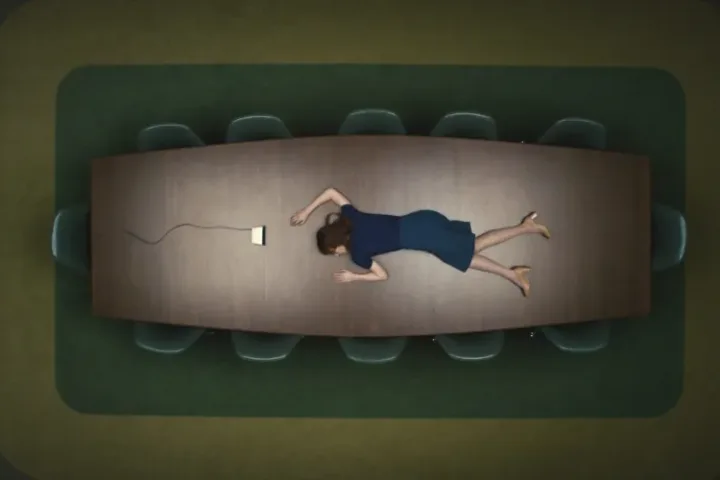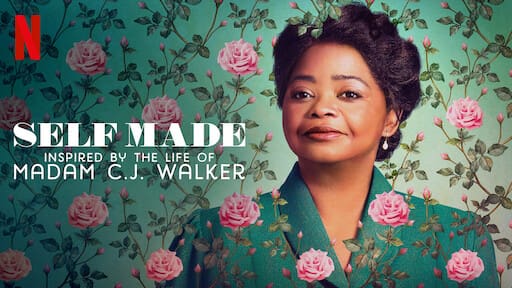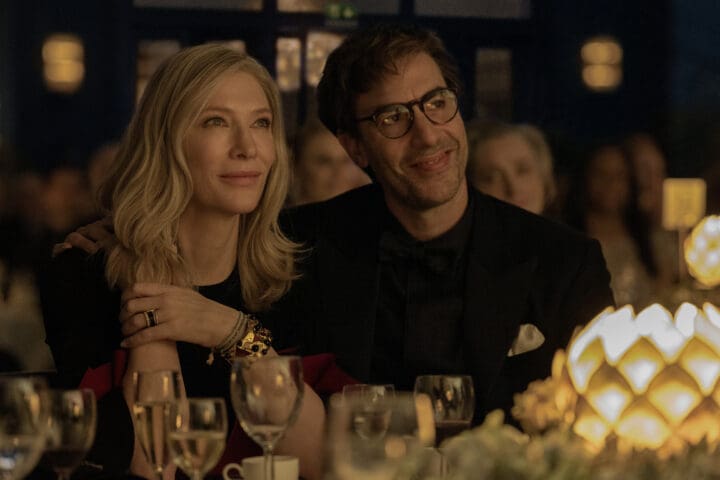As someone training to become a therapist, watching Shrinking on Apple TV+ has been a deeply personal and moving experience for me. What makes this comedy-drama so special isn’t just its humor or heart—it’s the raw and honest way it portrays grief, healing, and the complicated, messy path of personal growth. From the very first episode, I felt a connection to the characters and their stories, almost as if they were holding up a mirror to parts of my own life. This show has become more than entertainment for me; it feels like a guidepost, a reminder that even in the darkest times, there’s always room for healing, connection, and, surprisingly, even laughter.
While navigating my journey academically and practically to becoming a therapist, I’m learning how complex and layered human experiences truly are. There’s so much more to people than what meets the eye—an intricate mix of pain, joy, fear, and hope that shapes who we are. Watching Jason Segel’s portrayal of Jimmy, a therapist grappling with the immense grief of losing his wife, really hit home for me. Jimmy’s character is so flawed and human, struggling to hold it all together while continuing to show up for his clients. It’s a powerful reminder that even therapists—those we look to for guidance—are human too. They carry their own pain, their own struggles, and their own need to heal. That vulnerability is what makes them, and all of us, real.
One of the most poignant aspects of the show for me is how Jimmy’s professional and personal lives are so deeply intertwined. As someone who’s learning to care for others while also working through my own challenges, this felt incredibly relatable. Like Jimmy, I sometimes wonder how we can offer support to others when we’re still figuring out how to support ourselves. The show doesn’t shy away from this paradox—it embraces it, showing that growth and healing aren’t linear. It’s a process, one that requires patience, honesty, and a willingness to face hard truths.
For me, Shrinking is more than a show—it’s a heartfelt reminder that being human is messy, imperfect, and full of contradictions. But it’s also beautiful. Whether you’re a therapist in training like me, someone seeking healing, or just a person trying to navigate life’s ups and downs, this show offers a message of hope: that healing isn’t about being perfect; it’s about showing up, being vulnerable, and finding connection, even in the most unexpected places.
The Women of the Shrinking
✿ Thank you for reading!
Subscribe to be our bestie, no spam—just good vibes once a month.
The women in Shrinking are absolutely incredible! From the moment they hit the screen, their performances draw you in with warmth, depth, and strength. Jessica Williams, who plays Gaby, brings a refreshing energy to the show, embodying vulnerability and resilience with such authenticity. And then there’s Lukita Maxwell, whose portrayal of Jimmy’s daughter, Alice, adds an emotional layer to the story—she’s both adorable and fierce, showing us the power of a complicated, yet loving, family dynamic. Christa Miller, as the sharp and witty Liz, also shines. Her comedic timing and chemistry with the rest of the cast make her a standout, bringing a lightness to the heavier moments of the show.
They bring such a beautiful energy to the show—each character is unique and dynamic, creating powerful connections with the audience. Their portrayals of real, imperfect women navigating the messiness of life are both heartwarming and inspiring. Alongside these amazing women, the incredible California setting adds another layer of joy to the show. The stunning landscapes, vibrant cities, and gorgeous scenery will leave you with a smile on your face, soaking in the beauty of the Golden State. And of course, Harrison Ford—what more can be said? He’s an absolute icon. His presence in the show is unmatched, bringing a level of gravitas and charm that only someone of his legendary status can deliver. Every scene with him feels like an event, reminding us why he’s one of the greatest actors of all time.

Here are my 10 reasons to watch Shrinking:
1. A Raw and Real Portrayal of Grief
The central theme of Shrinking is grief—how it manifests, how it consumes us, and how it pushes us to reevaluate who we are. Jimmy’s grief after losing his wife feels painfully real. As someone entering the therapeutic profession, I understand the significance of grief, not just for the one who experiences it directly, but for those who love them. According to The Handbook of Grief Therapies by R. A. Neimeyer (2011), grief is an intricate emotional process that’s not linear—it doesn’t “go away” but rather changes shape as time passes. Shrinking captures this beautifully, showing that healing requires more than just time—it requires understanding, acceptance, and, sometimes, letting ourselves fall apart before we can put ourselves back together.
2. Vulnerability Is Key to Healing
The show exemplifies the power of vulnerability in both personal and professional growth. Jimmy’s journey, though difficult and full of setbacks, teaches us that vulnerability is essential for healing. In his case, it’s about allowing himself to feel pain and to let others see his vulnerability. Brené Brown (2012), in her work on vulnerability, emphasizes that embracing vulnerability is necessary for real connection and healing. Shrinking reflects this deeply, showing us that allowing ourselves to be open, even when it’s uncomfortable, is the first step to truly healing.
3. Comedy with Heart
What makes Shrinking unique is its ability to mix humor with deep emotional themes. While the show deals with difficult issues, there are moments of lightness and comedy that make the heavy moments easier to digest. This balance of humor and heart mirrors the therapeutic process itself. Freud once said, “Humor is the relief of tension.” Laughter, even in the most difficult times, can be a form of healing. Shrinking shows us how humor can be a tool for survival, helping us get through the toughest of times with a little bit of lightness.
4. Strong, Compassionate Characters
The characters in Shrinking are incredibly well-developed and multidimensional. They each carry their own emotional baggage, and watching them learn and grow is incredibly rewarding. Jimmy’s character, in particular, is a beautiful example of how growth can come from the most painful places. As Carl Rogers (1961), one of the founding figures of humanistic psychology, wrote: “The curious paradox is that when I accept myself just as I am, then I can change.” Jimmy’s journey shows this principle in action—only when he accepts his grief and vulnerability can he begin to heal.
5. Therapy, Both for the Client and the Therapist
The show offers a fascinating look at therapy—not only from the perspective of the client but also from the therapist’s point of view. This dual perspective reminds us that therapists themselves are human too, and they too must face their own struggles. Carl Rogers (1961) discussed the importance of therapists being self-aware and human in their practice. Shrinking wonderfully shows that therapists must also heal in order to truly help others heal. This reflection on self-awareness and personal growth is one of the most profound aspects of the show.
6. Empathy and the Power of Connection
The show places a strong emphasis on empathy and connection, which are at the core of the therapeutic process. Throughout the series, characters open up to one another in ways that are deeply transformative. Daniel Goleman’s work on emotional intelligence (1995) highlights how empathy allows us to connect with others on a deeper level. In Shrinking, empathy is a powerful force, helping characters build relationships and heal, despite the challenges they face.
7. Mental Health Awareness
Shrinking does an excellent job of raising awareness about mental health and the importance of seeking help. It presents mental health challenges as part of the human experience, showing that no one is exempt from emotional struggles. In On Becoming a Person (1961), Carl Rogers writes about the therapeutic process as a means to promote self-understanding and growth. Shrinking encourages viewers to recognize that seeking help is not a weakness but a powerful act of self-care.
8. The Importance of Boundaries in Personal Growth
One of the key lessons of Shrinking is the importance of boundaries—both in therapy and in life. Jimmy’s inability to set clear boundaries in his relationships often leads to emotional burnout and complications. As John Townsend (2007) discusses in Boundaries, it’s essential for personal and professional health to recognize and set boundaries. The show beautifully captures this lesson, reminding us that we must protect our own well-being before we can effectively help others.
9. The Impact of Grief on Relationships
Shrinking also sheds light on how grief affects not just the individual but their relationships with others. Jimmy’s grief isolates him from his family and friends, and it is only through opening up that he begins to rebuild these connections. According to James and Friedman’s The Grief Recovery Handbook (2009), grief doesn’t just change the person who experiences it—it also changes their relationships. Shrinking shows that healing is not just an internal process but something that requires the support and love of others.
10. A Story of Hope and Personal Growth
Despite its heavy themes, Shrinking is ultimately a story of hope. It shows that even in our darkest moments, there is always the possibility of growth, healing, and change. The show reminds us that while we cannot control the pain we experience, we can choose how to grow from it. As Viktor Frankl (1946) wrote in Man’s Search for Meaning, “When we are no longer able to change a situation, we are challenged to change ourselves.” Shrinking encapsulates this message perfectly, showing that change is always possible, no matter how hard the journey.
Personal Notes from the Author
Shrinking is not just a show about therapy; it’s about human connection, vulnerability, and the emotional growth that comes from facing our pain. It beautifully shows that healing is a process, one that requires compassion, empathy, and an openness to change. As someone on the journey to becoming a therapist, this show has been a powerful reminder of why we do the work we do. It’s a heartfelt and uplifting series that will leave you reflecting on your own personal growth, relationships, and the importance of asking for help when we need it.
Watching Shrinking was a deeply emotional experience for me. While I am practicing, it’s easy to forget that healing is a journey for both the therapist and the client. This show beautifully reminded me that vulnerability is not only a strength, but it’s also essential for real growth. The characters in Shrinking taught me the importance of accepting our own imperfections and learning from them. It reinforced the idea that, whether in therapy or in life, we must be willing to ask for help, be vulnerable, and allow ourselves to heal. This show is a profound reminder of the power of empathy, human connection, and the courage it takes to face our deepest fears and emerge stronger on the other side.
References:
Neimeyer, R. A. (2011). The Handbook of Grief Therapies. Routledge
Brown, B. (2012). Daring Greatly. Gotham Books
Rogers, C. (1961). On Becoming a Person. Houghton Mifflin
Goleman, D. (1995). Emotional Intelligence: Why It Can Matter More Than IQ. Bantam Books
Maslow, A. (1954). Motivation and Personality. Harper & Row
Townsend, J. (2007). Boundaries: When to Say Yes, How to Say No to Take Control of Your Life. Zondervan
James, M., & Friedman, F. (2009). The Grief Recovery Handbook. HarperOne
Frankl, V. (1946). Man’s Search for Meaning. Beacon Press
✱ If you liked this article, please share it with a friend who could use inspiration.
If you have a topic in mind or a story to share anonymously or with your name, email us at team@she.work








